
Yeonmi Park (Narrative 2)
The Global Slavery Index 2018 estimates that there are 2,640,000 people living in conditions of modern slavery in The Democratic People’s Republic of Korea (North Korea). Men, women and children are subjected to forced labour and sex trafficking. Government oppression in the DPRK prompts many North Koreans to flee the country in ways that make them vulnerable to human trafficking in destination countries. Many of the estimated 10 000 North Korean women and girls who have migrated illegally to China to flee abuse and human rights violation are particularly vulnerable to trafficking. Some lure, drug, detain or kidnap North Korean women on their arrival, others offer jobs but subsequently force the women into prostitution, domestic service, or forced marriage. If found, Chinese authorities often repatriate victims back to the DPRK where they are subjected to harsh punishment including forced labour in labour camps or death. Yeonmi Park was 13 years old a broker offered her and her mother a chance to escape starvation in North Korea to China. However, when they arrived Park tells of how the first thing she saw was her mother raped. Both Park and her mother were sold to Chinese men as brides. Park was able to escape China to South Korea by crossing the Gobi desert. She is now studying at Columbia University in New York and runs a non-profit organisation to save other girls trafficked to China.

Yeonmi Park
The Democratic People’s Republic of Korea (North Korea) is a source country for men, women and children who are subjected to forced labour and sex trafficking. Government oppression in the DPRK prompts many North Koreans to flee the country in ways that make them vulnerable to human trafficking in destination countries. Many of the estimated 10 000 North Korean women and girls who have migrated illegally to China to flee abuse and human rights violation are particularly vulnerable to trafficking. Some lure, drug, detain or kidnap North Korean women on their arrival, others offer jobs but subsequently force the women into prostitution, domestic service, or forced marriage. If found, Chinese authorities often repatriate victims back to the DPRK where they are subjected to harsh punishment including forced labour in labour camps or death. Yeonmi Park and her mother fled North Korea for China when she was 13 years old, hoping to find food and work. Instead Yeonmi and her mother were sold as brides to Chinese men.
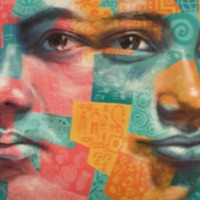
Cho Sun-Ok
The Democratic People’s Republic of Korea (North Korea) is a source country for men, women and children who are subjected to forced labour and sex trafficking. Government oppression in the DPRK prompts many North Koreans to flee the country in ways that make them vulnerable to human trafficking in destination countries. Many of the estimated 10 000 North Korean women and girls who have migrated illegally to China to flee abuse and human rights violation are particularly vulnerable to trafficking. Some lure, drug, detain or kidnap North Korean women on their arrival, others offer jobs but subsequently force the women into prostitution, domestic service, or forced marriage. If found, Chinese authorities often repatriate victims back to the DPRK where they are subjected to harsh punishment including forced labour in labour camps or death. Cho Sun-Ok was trafficked to China after leaving North Korea to escape poverty. She tells of how she lives in fear that she will be found by authorities and returned to North Korea.
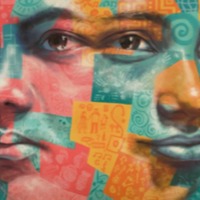
Lee Jeong-Ae
The Democratic People’s Republic of Korea (North Korea) is a source country for men, women and children who are subjected to forced labour and sex trafficking. Government oppression in the DPRK prompts many North Koreans to flee the country in ways that make them vulnerable to human trafficking in destination countries. Many of the estimated 10 000 North Korean women and girls who have migrated illegally to China to flee abuse and human rights violation are particularly vulnerable to trafficking. Some lure, drug, detain or kidnap North Korean women on their arrival, others offer jobs but subsequently force the women into prostitution, domestic service, or forced marriage. If found, Chinese authorities often repatriate victims back to the DPRK where they are subjected to harsh punishment including forced labour in labour camps or death. Lee Jeong-Ae, was trafficked to China and forced to marry a Chinese man. She now works as a karaoke hostess in Harbin
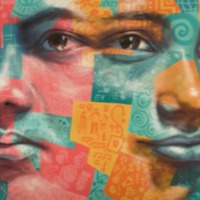
Kim Young-Ae
The Democratic People’s Republic of Korea (North Korea) is a source country for men, women and children who are subjected to forced labour and sex trafficking. Government oppression in the DPRK prompts many North Koreans to flee the country in ways that make them vulnerable to human trafficking in destination countries. Many of the estimated 10 000 North Korean women and girls who have migrated illegally to China to flee abuse and human rights violation are particularly vulnerable to trafficking. Some lure, drug, detain or kidnap North Korean women on their arrival, others offer jobs but subsequently force the women into prostitution, domestic service, or forced marriage. If found, Chinese authorities often repatriate victims back to the DPRK where they are subjected to harsh punishment including forced labour in labour camps or death. Kim Young-Ae, left North Korea during the famine of 1999. However upon arrival in China, she was locked inside a house and subjected to physical and sexual abuse daily.
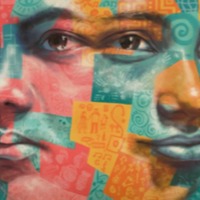
Kang Sun-Mi
The Democratic People’s Republic of Korea (North Korea) is a source country for men, women and children who are subjected to forced labour and sex trafficking. Government oppression in the DPRK prompts many North Koreans to flee the country in ways that make them vulnerable to human trafficking in destination countries. Many of the estimated 10 000 North Korean women and girls who have migrated illegally to China to flee abuse and human rights violation are particularly vulnerable to trafficking. Some lure, drug, detain or kidnap North Korean women on their arrival, others offer jobs but subsequently force the women into prostitution, domestic service, or forced marriage. If found, Chinese authorities often repatriate victims back to the DPRK where they are subjected to harsh punishment including forced labour in labour camps or death. Kang Sun-Mi, 35, was forced to marry a Chinese man after he ‘bought’ her. She was subjected to physical abuse and had her movement restricted, being locked inside the house.
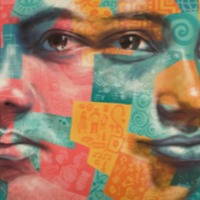
Paek Sun-Joo
China is a source, destination, and transit country for men, women, and children subjected to forced labor and sex trafficking. China’s internal migrant population, estimated to exceed 180 million people, is vulnerable to trafficking, with Chinese men, women, and children subjected to forced labor in brick kilns, coal mines and factories, some of which operate illegally and take advantage of lax government enforcement. Forced begging by adults and children occurs throughout China. There are reports of traffickers targeting for forced labor and forced begging persons with developmental disabilities as well as children whose parents have migrated to the cities and left them with relatives, estimated at more than 60 million. Paek Sun-Joo, was sold to China at 18 years old as a street child.
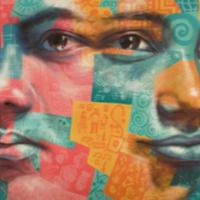
Jeong Soo-Ok
The Democratic People’s Republic of Korea (North Korea) is a source country for men, women and children who are subjected to forced labour and sex trafficking. Government oppression in the DPRK prompts many North Koreans to flee the country in ways that make them vulnerable to human trafficking in destination countries. Many of the estimated 10 000 North Korean women and girls who have migrated illegally to China to flee abuse and human rights violation are particularly vulnerable to trafficking. Some lure, drug, detain or kidnap North Korean women on their arrival, others offer jobs but subsequently force the women into prostitution, domestic service, or forced marriage. If found, Chinese authorities often repatriate victims back to the DPRK where they are subjected to harsh punishment including forced labour in labour camps or death. Jeong Soo-Ok, travelled to China after she was told she could make money there, However, upon arrival she was taken to a man’s house and then sold in to prostitution.
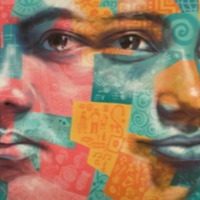
Chun Young-Hee
The Democratic People’s Republic of Korea (North Korea) is a source country for men, women and children who are subjected to forced labour and sex trafficking. Government oppression in the DPRK prompts many North Koreans to flee the country in ways that make them vulnerable to human trafficking in destination countries. Many of the estimated 10 000 North Korean women and girls who have migrated illegally to China to flee abuse and human rights violation are particularly vulnerable to trafficking. Some lure, drug, detain or kidnap North Korean women on their arrival, others offer jobs but subsequently force the women into prostitution, domestic service, or forced marriage. If found, Chinese authorities often repatriate victims back to the DPRK where they are subjected to harsh punishment including forced labour in labour camps or death. Chun Young-Hee was sold by traffickers in China twice on the bride market. Though she attempted to escape, fear of being caught led her to returning to her Chinese husband.
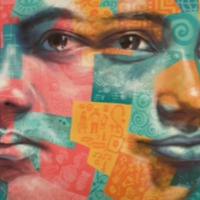
Ho Kyung-Soon
The Democratic People’s Republic of Korea (North Korea) is a source country for men, women and children who are subjected to forced labour and sex trafficking. Government oppression in the DPRK prompts many North Koreans to flee the country in ways that make them vulnerable to human trafficking in destination countries. Many of the estimated 10 000 North Korean women and girls who have migrated illegally to China to flee abuse and human rights violation are particularly vulnerable to trafficking. Some lure, drug, detain or kidnap North Korean women on their arrival, others offer jobs but subsequently force the women into prostitution, domestic service, or forced marriage. If found, Chinese authorities often repatriate victims back to the DPRK where they are subjected to harsh punishment including forced labour in labour camps or death. Ho Kyung-Soon was told she could make money working in China, however upon arrival she was sold to a man 12 years her senior to be his wife.

Sook Joo
The Democratic People’s Republic of Korea (North Korea) is a source country for men, women and children who are subjected to forced labour and sex trafficking. Government oppression in the DPRK prompts many North Koreans to flee the country in ways that make them vulnerable to human trafficking in destination countries. Many of the estimated 10, 000 North Korean women and girls who have migrated illegally to China to flee abuse and human rights violation are particularly vulnerable to trafficking. Some lure, drug, detain or kidnap North Korean women on their arrival, others offer jobs but subsequently force the women into prostitution, domestic service, or forced marriage. If found, Chinese authorities often repatriate victims back to the DPRK where they are subjected to harsh punishment including forced labour in labour camps or death. Sook Joo was working in Moo-San station when she fled North Korea to China in search of a better life. However, upon arrival she was sold to a Chinese man and tells of how she was treated as less than human.
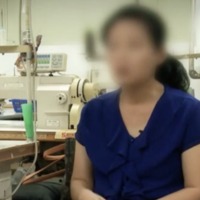
Mee Yon
The Democratic People’s Republic of Korea (North Korea) is a source country for men, women and children who are subjected to forced labour and sex trafficking. Government oppression in the DPRK prompts many North Koreans to flee the country in ways that make them vulnerable to human trafficking in destination countries. Many of the estimated 10, 000 North Korean women and girls who have migrated illegally to China to flee abuse and human rights violation are particularly vulnerable to trafficking. Some lure, drug, detain or kidnap North Korean women on their arrival, others offer jobs but subsequently force the women into prostitution, domestic service, or forced marriage. If found, Chinese authorities often repatriate victims back to the DPRK where they are subjected to harsh punishment including forced labour in labour camps or death.Mee Yon was heartbroken after the death of her child due to starvation when she decided to flee to China. After crossing the Tumen River in to China Mee Yon followed people who she thought were taking her to a job where she could make a better life for herself and her family. However, after arriving in a rural village, she was told a Chinese man had paid for her to be his wife. Mee Yon attempted to escape to South Korea but was caught and taken to the investigation department and returned to North Korea.
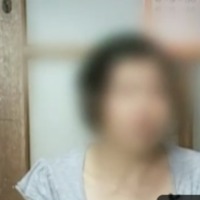
Chin Soon
The Democratic People’s Republic of Korea (North Korea) is a source country for men, women and children who are subjected to forced labour and sex trafficking. Government oppression in the DPRK prompts many North Koreans to flee the country in ways that make them vulnerable to human trafficking in destination countries. Many of the estimated 10, 000 North Korean women and girls who have migrated illegally to China to flee abuse and human rights violation are particularly vulnerable to trafficking. Some lure, drug, detain or kidnap North Korean women on their arrival, others offer jobs but subsequently force the women into prostitution, domestic service, or forced marriage. If found, Chinese authorities often repatriate victims back to the DPRK where they are subjected to harsh punishment including forced labour in labour camps or death. Chin Soon tells of the starvation her family suffered in North Korea that led to her travelling to China in the hopes of providing for her family. However, upon arriving in China she was sold to a Chinese man as his wife. Chin Soon tells of how she learned of the outside world of music from her Chinese husband.
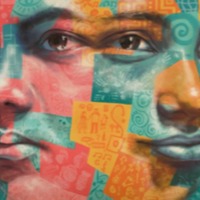
Esther Choe
The Democratic People’s Republic of Korea (North Korea) is a source country for men, women and children who are subjected to forced labour and sex trafficking. Government oppression in the DPRK prompts many North Koreans to flee the country in ways that make them vulnerable to human trafficking in destination countries. Many of the estimated 10 000 North Korean women and girls who have migrated illegally to China to flee abuse and human rights violation are particularly vulnerable to trafficking. Some lure, drug, detain or kidnap North Korean women on their arrival, others offer jobs but subsequently force the women into prostitution, domestic service, or forced marriage. If found, Chinese authorities often repatriate victims back to the DPRK where they are subjected to harsh punishment including forced labour in labour camps or death. Esther Choe left her family behind in North Korea to seek out work in China after arranging passage with a handler. But dreams of making extra income to help feed her loved ones were shattered when she realized that she had been sold into marriage across the border by a human trafficker. On April 18, 2013 she testified before the global human rights subcommittee in the U.S. House of Representatives, saying that ‘countless North Korean refugee women’ had been through similar experiences and worse
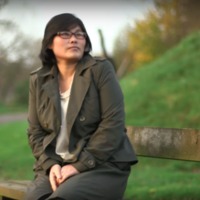
Park Ji-hyun
The Democratic People’s Republic of Korea (North Korea) is a source country for men, women and children who are subjected to forced labour and sex trafficking. Government oppression in the DPRK prompts many North Koreans to flee the country in ways that make them vulnerable to human trafficking in destination countries. Many of the estimated 10 000 North Korean women and girls who have migrated illegally to China to flee abuse and human rights violation are particularly vulnerable to trafficking. Some lure, drug, detain or kidnap North Korean women on their arrival, others offer jobs but subsequently force the women into prostitution, domestic service, or forced marriage. If found, Chinese authorities often repatriate victims back to the DPRK where they are subjected to harsh punishment including forced labour in labour camps or death. In the 1990s North Korea experienced a wide scale famine that killed up to 1 million people. After her family was displaced, Ji-hyun was left to care for her dying father. To escape starvation, she and her brother left, travelling with traffickers into China. Ji-hyun was told that if she wanted to provide for her family, she must marry a Chinese man. After being in China for 6 years Ji-hyun was reported to the authorities., sent back to North Korea and placed in a correctional facility before being sent to Chongin labour camp in Songpyong District. After becoming ill and unable to work, Ji-hun was dismissed from the labour camp. Alone and homeless she arranged to be re-trafficked back to China in order to find the son she had left behind. Once reunited, they escaped with the help of a man who Ji-hyun fell in love with. They all now live as a family in the UK.
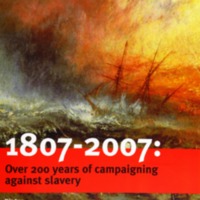
Anti-Slavery International, 2007
The world's oldest human rights organisation, Anti-Slavery International, led several initiatives in response to the bicentenary. The Fight for Freedom 1807-2007 Campaign, launched in 2005, called for measures to address the continuing legacies of the slave trade. The publication '1807-2007: Over 200 years of campaigning against slavery' looked back at the work of Anti-Slavery International and its predecessor organisations. The Spotlight on Slavery series of exhibitions and events included debates, lectures, film screenings and photography exhibitions. Anti-Slavery International also collaborated with a number of other organisations and projects in 2007, including Rendezvous of Victory and Set All Free, and contributed exhibition material to various exhibitions around the UK, including the Remembering Slavery exhibition at the Discovery Museum in Newcastle.